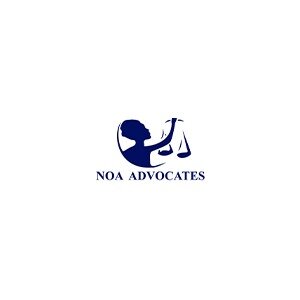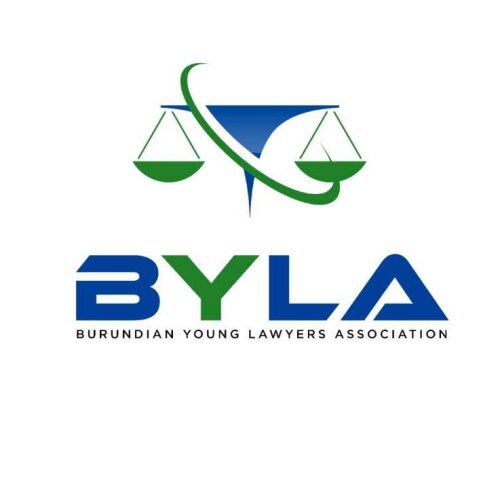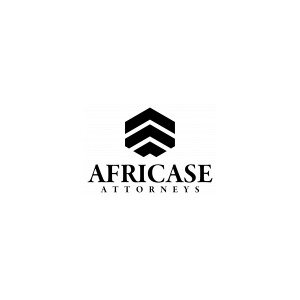Best Structured Finance Lawyers in Burundi
Share your needs with us, get contacted by law firms.
Free. Takes 2 min.
Or refine your search by selecting a city:
List of the best lawyers in Burundi
About Structured Finance Law in Burundi
Structured finance in Burundi refers to a set of complex financial instruments and strategies used to manage risk, facilitate investment, and optimize funding for businesses and projects. Unlike traditional loans, structured finance may involve asset-backed securities, securitization, and the creation of tailor-made agreements between parties such as banks, corporations, investors, and government entities. In Burundi, the practice of structured finance is gaining momentum as banks and companies look for innovative ways to raise capital, manage credit exposure, and support infrastructure and development projects.
Why You May Need a Lawyer
Engaging in structured finance transactions involves multiple stakeholders, intricate legal agreements, and regulatory compliance. A lawyer specializing in structured finance can help in situations such as:
- Structuring deals involving loans, asset-backed securities, or other complex financial products
- Ensuring compliance with local and international regulations
- Negotiating terms with banks, investors, or government agencies
- Drafting, reviewing, and finalizing contracts and agreements
- Assessing tax implications and cross-border financial rules
- Advising on risk allocation and mitigation measures
- Resolving disputes arising from structured finance transactions
- Facilitating financing for infrastructure, energy, or large-scale development projects
Local Laws Overview
The legal landscape for structured finance in Burundi is shaped by national regulations, banking laws, the Central Bank’s (Banque de la République du Burundi) policies, and regional frameworks such as those from the East African Community (EAC). Key aspects include:
- Banking regulations governing lending, collateral, and capital adequacy
- Requirements for registration and enforcement of security interests
- Currency control and foreign exchange regulations for cross-border deals
- Taxation of financial products and withholding taxes on interest and investment returns
- Corporate law provisions for establishing special purpose vehicles (SPVs) or subsidiaries
- Anti-money laundering (AML) and know your customer (KYC) obligations
- Regulatory approval processes for large financing arrangements, especially in public-private partnerships (PPPs)
Burundi’s legal system primarily draws on civil law traditions, so courts will interpret contractual terms and regulatory requirements based on written statutes and regulations. Structured finance arrangements must comply with all applicable laws to ensure validity and enforceability.
Frequently Asked Questions
What is structured finance and how is it different from a regular loan?
Structured finance involves customized financial products that go beyond traditional loans. It often includes pooling assets, creating securities, or designing financial solutions tailored to specific needs, helping parties manage risk and attract investment.
Are there specific laws in Burundi governing structured finance?
There is no single law for structured finance in Burundi. Instead, transactions are governed by a combination of banking regulations, corporate law, tax law, and Central Bank directives, along with any relevant regional agreements.
Who typically uses structured finance solutions in Burundi?
Banks, corporations, project developers, government entities, and infrastructure providers commonly use structured finance to raise capital, fund large projects, and manage risk.
Can foreign investors participate in structured finance deals in Burundi?
Yes, foreign investors can participate, but they must comply with local regulations regarding currency controls, repatriation of funds, and any sector-specific restrictions.
What are common assets used in structured finance transactions?
Real estate, receivables, equipment, infrastructure assets, and sometimes future project revenues can be used as collateral or underlying assets in structured finance arrangements.
Are special purpose vehicles (SPVs) allowed in Burundi?
Yes, companies can establish SPVs, subject to compliance with local company registration and regulatory requirements.
What risks are associated with structured finance transactions?
Risks may include legal and regulatory compliance, counterparty risk, market fluctuations, operational complexities, and potential changes in tax policy.
What role does the Central Bank play in structured finance?
The Central Bank sets key banking policies, oversees exchange controls, and may need to approve larger or innovative financial transactions-especially those involving public assets or significant foreign investment.
How are disputes resolved in structured finance transactions?
Disputes are usually settled according to the terms of the contract. They can be resolved in local courts or through arbitration if previously agreed to by the parties.
Do I need a lawyer for every structured finance transaction?
While smaller or routine transactions may not always require legal counsel, complex or high-value deals strongly benefit from specialized legal guidance to ensure compliance and protect your interests.
Additional Resources
For more information or support regarding structured finance in Burundi, consider contacting the following:
- Banque de la République du Burundi (Central Bank) - Main regulator for financial transactions
- Ministry of Finance, Budget and Economic Planning - Policies on investment and finance
- Burundi Revenue Authority - Guidance on tax implications
- Regulatory authorities for banking, insurance, and securities
- East African Community (EAC) - Regional frameworks impacting cross-border finance
- National and international law firms with a local presence and experience in structured finance
Next Steps
If you think you need legal assistance with a structured finance matter in Burundi, here are suggested steps:
- Clearly outline your goals and the nature of your structured finance transaction
- Gather all relevant documents and information regarding assets, parties, and proposed terms
- Research qualified lawyers or law firms with expertise in structured finance and local regulations
- Arrange initial consultations to assess experience and compatibility
- Discuss the scope of work, timelines, and fees before engaging legal services
- Remain involved throughout the process and seek clarifications whenever needed
A knowledgeable legal advisor will help you comply with the law, minimize risk, and tailor structured finance solutions that meet your objectives in Burundi’s evolving financial landscape.
Lawzana helps you find the best lawyers and law firms in Burundi through a curated and pre-screened list of qualified legal professionals. Our platform offers rankings and detailed profiles of attorneys and law firms, allowing you to compare based on practice areas, including Structured Finance, experience, and client feedback.
Each profile includes a description of the firm's areas of practice, client reviews, team members and partners, year of establishment, spoken languages, office locations, contact information, social media presence, and any published articles or resources. Most firms on our platform speak English and are experienced in both local and international legal matters.
Get a quote from top-rated law firms in Burundi — quickly, securely, and without unnecessary hassle.
Disclaimer:
The information provided on this page is for general informational purposes only and does not constitute legal advice. While we strive to ensure the accuracy and relevance of the content, legal information may change over time, and interpretations of the law can vary. You should always consult with a qualified legal professional for advice specific to your situation.
We disclaim all liability for actions taken or not taken based on the content of this page. If you believe any information is incorrect or outdated, please contact us, and we will review and update it where appropriate.
Browse structured finance law firms by city in Burundi
Refine your search by selecting a city.












